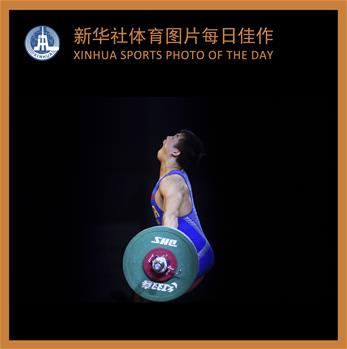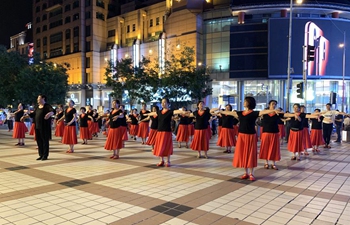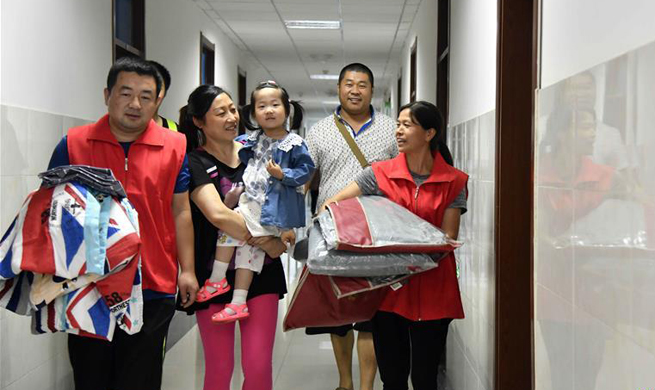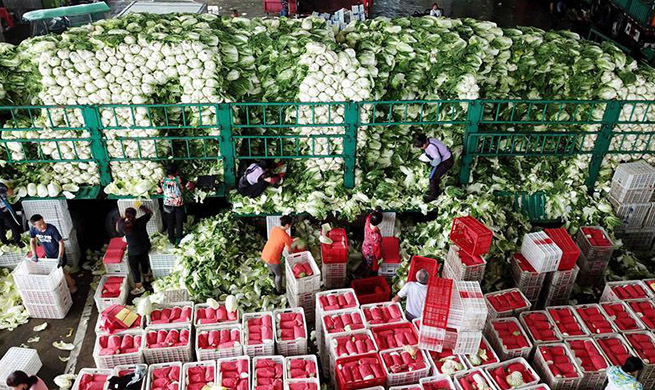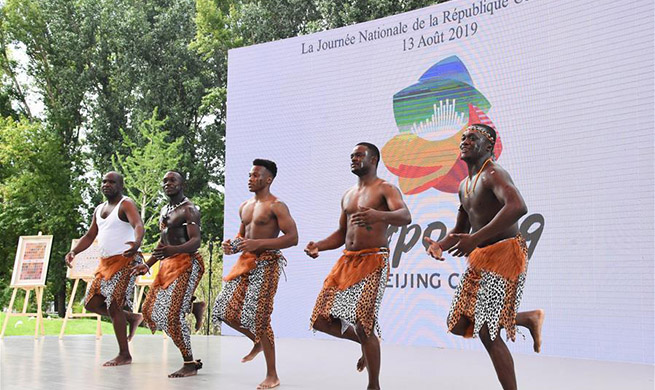NANCHANG, Aug. 13 (Xinhua) -- An item of clothing is made in 10 minutes in Ge Jiuchang's mechanized garment factory, while 85 years ago, it would take his grandfather half a day with a hand sewing machine.
"I inherited the exquisite traditional clothes-making skills from my grandpa," said Ge, the 43-year-old production team leader of a garment factory in Yudu County in east China's Jiangxi Province, who is in charge of 15 tailors.
Yudu, with a tradition of fluffing cotton and sewing clothes, was a place where around 86,000 Red Army officers and soldiers left for the Long March in October 1934. At that time, Ge Jiediao, Ge Jiuchang's grandfather, joined the Red Army to sew uniforms in 1929 when he was an apprentice to a tailor.
"Due to his exquisite sewing skills, my grandfather was assigned to sew collars and sleeves onto military uniforms," Ge Jiuchang said.
Carrying a hand sewing machine, Ge Jiediao spent his rest time mending clothes for his comrades during the Long March.
After the founding of the People's Republic of China in 1949, Ge Jiediao dreamed of running a tailor store and making clothes for his fellow-villagers.
Nowadays, Ge Jiuchang follows in his grandfather's footsteps.
In 1993, after graduating from a junior high school, Ge Jiuchang left Yudu and started his tailoring career in a garment enterprise in south China's Guangdong Province. At that time, keeping warm was no longer the first consideration when most people chose clothes.
In the past, urban and rural families used to invite tailors to make clothes for them. In the early 1990s, however, most people bought their clothes on the market whenever and wherever they wanted.
"Nowadays, consumers value uniqueness and personalization when choosing clothes," said Luo Lihua, a 36-year-old tailor of the Yudu-based production base of the Ganzhou Yingjia Model Clothes Co., Ltd.
The company took six years to collect the dressing data from its consumers, invested 200 million yuan (28.3 million U.S. dollars) to upgrade its production line and introduced a brand new intelligent production line of high-end women's dress.
The consumers can choose the fabric and color they like online, and the data is transferred to the production line simultaneously. In this way, clothes makers can tailor customized clothes according to different preferences.
With one-quarter of the county's population engaging in the garment industry, Yudu sees the new dressing trend as a fresh impetus for the transformation of traditional manufacturing.
Local authorities provided 20 million yuan of subsidies to help enterprises purchase the intelligent garment-producing devices as of August 2019.
In addition, the Yudu local government granted 3 billion yuan to develop and upgrade the traditional garment industry by building schools of garment design, talent apartments and institutes of textile and garment testing. With the policy support and skill-oriented industrial workers, new clothing enterprises are emerging in the county.
As a poverty-stricken county, Yudu is now home to more than 2,200 textile and garment enterprises, including five listed enterprises.
Over 80,000 people are working in the garment industry in China, with its output value reaching 40 billion yuan by the end of 2018.






